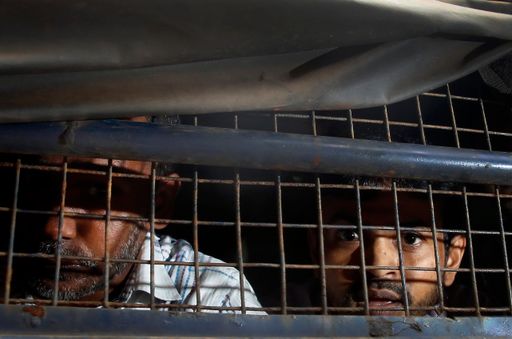Over five years later, 70 members of Tablighi Jamaat (TJ) in India have been acquitted by a Delhi court of charges for waging “corona jihad”, putting an end to a debate that ignited a lot of hate and backlash for Muslims in the country.
What’s new here
The Delhi High Court has quashed 16 FIRs, or first information reports, pertaining to 70 TJ members allegedly accommodating foreign nationals in mosques and their homes during the coronavirus pandemic.
The Jamaat members were facing accusations of aggravating the health emergency by organising an international congregation in violation of the pandemic-linked nationwide lockdown.
But on Thursday, the Delhi High Court’s Justice Neena Bansal Krishna formally quashed the criminal proceedings, marking the closure of a long-drawn legal chapter in the aftermath of the early days of Covid-19 in India.

Why is it significant
Under the Hindu nationalist government of the Bharatiya Janata Party (BJP), Indian Muslims have been on the receiving end of hate, often being portrayed as anti-nationals, and face stricter scrutiny under the law.
The court decision effectively wipes clean the legal slate for TJ members who had been entangled in criminal proceedings for over five years.
The FIRs were part of a highly controversial episode that had sparked widespread media coverage and public debate, often with communal undertones.
Many legal experts and rights groups had previously criticised the state’s response as overreaching and selectively harsh.
At the time, the issue of the TJ congregation was used to pin the blame for the Covid-19 spread on the Muslim minority by far-right supporters of the BJP government, which was facing scrutiny for poor handling of the situation.
Brief backgrounder
In March 2020, as India grappled with the early surge of Covid-19 cases and imposed a nationwide lockdown, a religious gathering at the TJ headquarters in Delhi’s Nizamuddin area became the centre of a storm.
The Delhi Police accused members of violating lockdown rules and sheltering foreign nationals, triggering multiple FIRs under various sections of the Indian Penal Code, the Epidemic Diseases Act, the Disaster Management Act and the Foreigners Act.
Initially, an FIR was registered against seven Indian nationals, but the investigation ballooned into dozens of charges, eventually implicating over 950 foreign nationals.
The TJ is a movement focused on proselytisation.
But what sets them apart is that a Tablighi member won’t bother a person of Hindu, Christian or Jewish faith for missionary purposes. Their efforts are traditionally focused on fellow Muslims alone, who they believe to be distracted by worldly affairs.
Started by Maulana Muhammad Ilyas in 1926 around the Indian region of Mewat, it has spread to more than a hundred countries and is now the largest Muslim missionary movement.
What happens next
The latest court verdict has reaffirmed that no concrete evidence linked the accused to the spread of the virus or any criminal conspiracy, casting doubt on the procedural integrity of the investigations.
It is unclear if the government will challenge the decision, though legal experts believe an appeal is unlikely to hold ground given previous acquittals and discharges in related cases.
Experts believe the verdict would serve as a legal vindication for those who argued that the entire episode had been unjustly communalised.
















